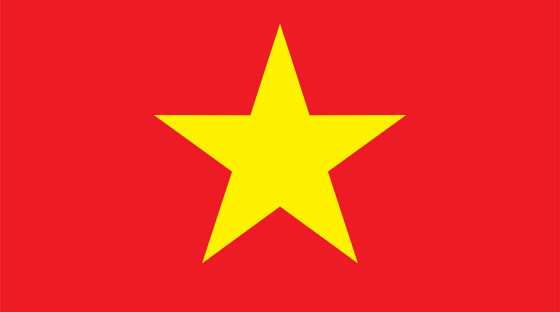-
Services
-
Software Project Delivery
-
Services
-
Solutions
-
Technologies
-
-
Network
-
Discover
-
Regions
-
Industries
-
Must-Read Guide
-
2026 Global Software Outsourcing Rates and Trends GuideDiscover why rates are just one aspect of the Accelerance Global Software Outsourcing Rates & Trends Guide, which offers valuable insights into the software development landscape.
-
-
-
Resources
-
Our Resources
-
Newest White paper
-
Aviation Ecosystem Modernization: A Holistic Approach for Meaningful TransformationModernize aviation by integrating people, processes, technology, and data
-
-
New eBook
-
 The True Cost of Software DevelopmentHidden costs can wreck your budget. Our new eBook breaks down the true cost of outsourcing—get your copy to stay ahead.
The True Cost of Software DevelopmentHidden costs can wreck your budget. Our new eBook breaks down the true cost of outsourcing—get your copy to stay ahead.
-
-
Featured White paper
-
Flow & Process OptimizationIn this white paper, you'll learn to streamline workflows, improve change management, and accelerate results.
-
-
-
About
-
About Accelerance
-
Our History
-
Accelerance: Our HistoryThere's great talent everywhere and great teams everywhere, which is the basis of the Accelerance model.
-
-
Software Without Borders
-
New Episode Every Week!Tune into our podcast Software Without Borders, the essential listen for technology leaders and business owners in the software sector who crave insights from the industry’s top minds.
-
-
Andy's Book
-
Synergea: A Blueprint for Building Effective, Globally Distributed Teams in the New Era of Software DevelopmentPeople are first and locations are secondary when it comes to software development success.
-
-
- Our Clients
Vietnam

Overview
Vietnam’s transition from a centrally planned to a market economy has transformed the country into one of the most dynamic in the East Asia region, with the government prioritizing an increase in foreign direct investment and the restructuring of state-owned enterprises. The economic forecast is positive, with a post-pandemic recovery expected to pick up momentum in 2024. Political relations have strengthened with the US and international tourism has rebounded strongly.
In line with its vision to increase the digital economy's contribution to GDP to 30% by 2030, the government has invested in developing tech-focused education initiatives. Several new technoparks have been created around the country to support IT and software outsourcing, and a young, tech-savvy population is fostering a thriving startup ecosystem with an openness to innovation in the face of rapid digitization. In a 2023 Asia Pacific workforce survey, 60% of Vietnamese believed AI would help them increase their productivity/efficiency at work, much higher than the region-wide result of 41%.
The Accelerance Global Network is the most curated list of high-quality global teams ever assembled.
880
Developers
Total number of developers in our certified partner network by country
2
Certified Partners
Total number of certified partners in our global network by country.
20hrs
Time Travel (From NY)
Average flight time from NY to the major cities in the country.
82
Partner Innovation capability
The score reflects investment in STEM progrms and IT funding by country.
87
Partner Skill Level
Level of workforce skills and quality of education, including factors such as digital literacy, interpersonal skills, etc.
77
Partner Global Competitiveness
National productivity based on 12 core pillars, including government policy, infrastructure, economic stability, etc.
High
Software Outsourcing Readiness
Overall rating, based on the maturity of the tech sector, socio-political conditions, and on-the-ground research by Accelerance.

Talent Pool & Education
The Vietnamese government is focusing on the development of 6G infrastructure and strengthening existing digital infrastructure. Plans include an emphasis on cloud computing, digital platforms, and software services. According to the 8th Southeast Asia Digital Economy Report, Vietnam has remained the fastest-growing digital economy in Southeast Asia for the second year in a row and is expected to hold this position until 2025.
With its emerging middle class (expected to reach 26% by 2026), Vietnam is becoming an innovation hub in Southeast Asia: Hanoi and Ho Chi Minh City, in particular, have seen a spike in the growth of startups, and many software developers and engineers have experience working in the United States or Europe.
Some 50,000 Vietnamese students enroll in computer science and IT-related majors each year, but a 2023 market report forecasts an ongoing shortage of tech talent, with a significant number of graduates not meeting the skill and professional requirements of businesses. However, the country has become an important global manufacturing base for high-tech companies, including Samsung and Apple. South Korean company LG Electronics has also opened an R&D center in Hanoi, partnering with Vietnamese universities to support local students pursuing careers in software development by providing academic scholarships and employment opportunities.
Language
Vietnamese is the official language. English skills are generally weak but improving, alongside the country’s significant growth in international tourism. Among the younger population, it is by far the most popular second language to learn at school. Accents pose the biggest issue, but engineers can usually read and write English, so written communication is an effective collaboration tool.
.png?width=600&height=375&name=Untitled%20design%20(34).png)
Economic Outlook
Vietnam is one of the fastest growing countries in the world and its economy has shown resilience to trade wars and a slowdown in neighboring China. According to IMF forecasts, the post-pandemic recovery is likely to gradually accelerate into 2024. Most analysts predict 6% growth, driven primarily by an anticipated pick-up in external trade. The government’s fiscal policy is expected to flex, reining in price growth to keep inflation below 4.5%.
The economic recovery has been driven by three main factors: a gradual increase in demand for Vietnamese exports, a rise in public investment, and resilient private consumption. Competitive wage costs, a wide network of trade agreements, and a supportive business environment are also considered key advantages. After a flat patch, tourism revenue increased by 50% in 2023. However, Vietnam will be vulnerable to headwinds if the United States and the European Union experience an economic downturn or if depressed consumer spending persists in China.
In pursuit of its aim to become a high-income country by 2045, Vietnam is making further commitments to transition towards low-carbon infrastructure. Targets include a 30% reduction in methane emissions and a halt to deforestation by 2030 while achieving net zero carbon emissions by 2050.
Political Conditions
As a one-party Communist state, the real power in Vietnam lies with the general secretary of the Communist Party, a post held by Nguyen Phu Trọng since 2011. Trong is expected to complete his third term, ending in 2026, which will ensure policy continuity and rule out major political reform. The forced retirement of the state president, Nguyen Xuan Phuc, in January 2023 and his replacement by one of Trong’s close allies will result in a further lean toward the general secretary’s policy priorities, according to the Economist Intelligence Unit. This will include an ongoing emphasis on a high-level anti-corruption campaign, accelerating land supply for foreign-invested industry, privatizing state-owned enterprises, and upgrading transport and energy infrastructure.
Political relations with the United States have been elevated to Vietnam’s highest diplomatic status, alongside China and Russia, following a visit by US President Joe Biden to Hanoi in late 2023. Vietnam’s strength in manufacturing is viewed as a key strategic factor in securing global supply chains, buffering the US from China-related risks. Almost half a century has passed since the end of the Vietnam War, as Biden noted obliquely in his official address: "We can trace a 50-year arc of progress between our nations, from conflict to normalization to this newly elevated status."
Learn more about our customer stories.
Looking for a customer story in a specific technology or industry? Discover compelling customer narratives within a specific technology or industry that resonate with your unique software development needs.
